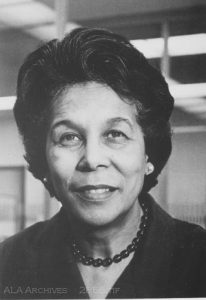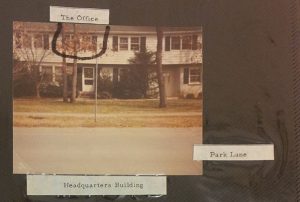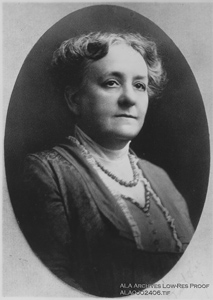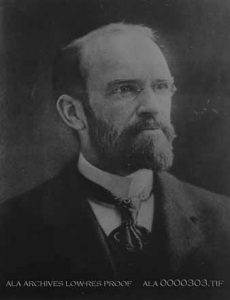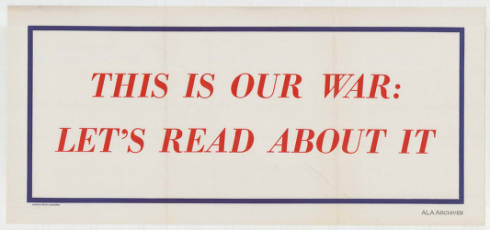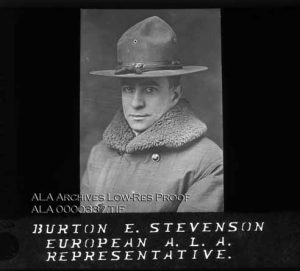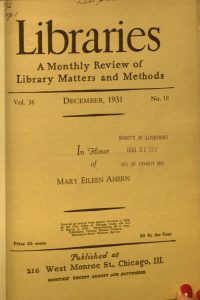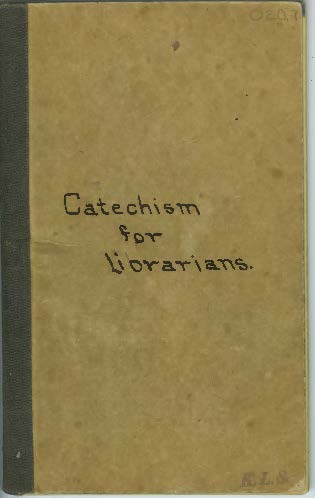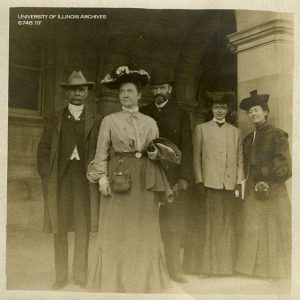In the middle of all of the holiday cheer, December is also a month for librarians across the country to think back on those who gave back to their communities. The late Lutie Eugenia Stearns, born on September 13, 1866, influenced many within the field of librarianship. With the holiday season upon us, who better to write about than a woman who selflessly dedicated her life to advocate for those whose voices went unheard?
Lutie Stearns began her career as a teacher in the Milwaukee Public Schools. With her apt skills in book collecting, she soon caught the eye of the Milwaukee Public Library’s, Minnie M. Oakley. After Minnie’s death in 1895, Stearns was then appointed head Librarian. Continue reading “The Gift of Literacy: Lutie E. Stearns”
